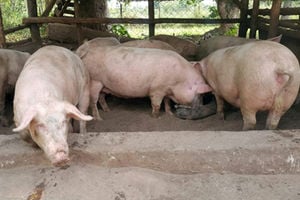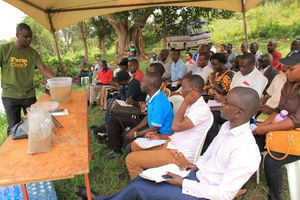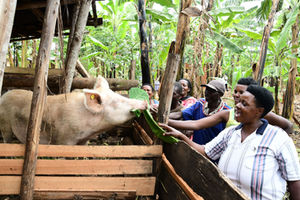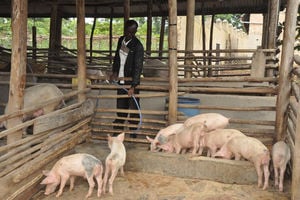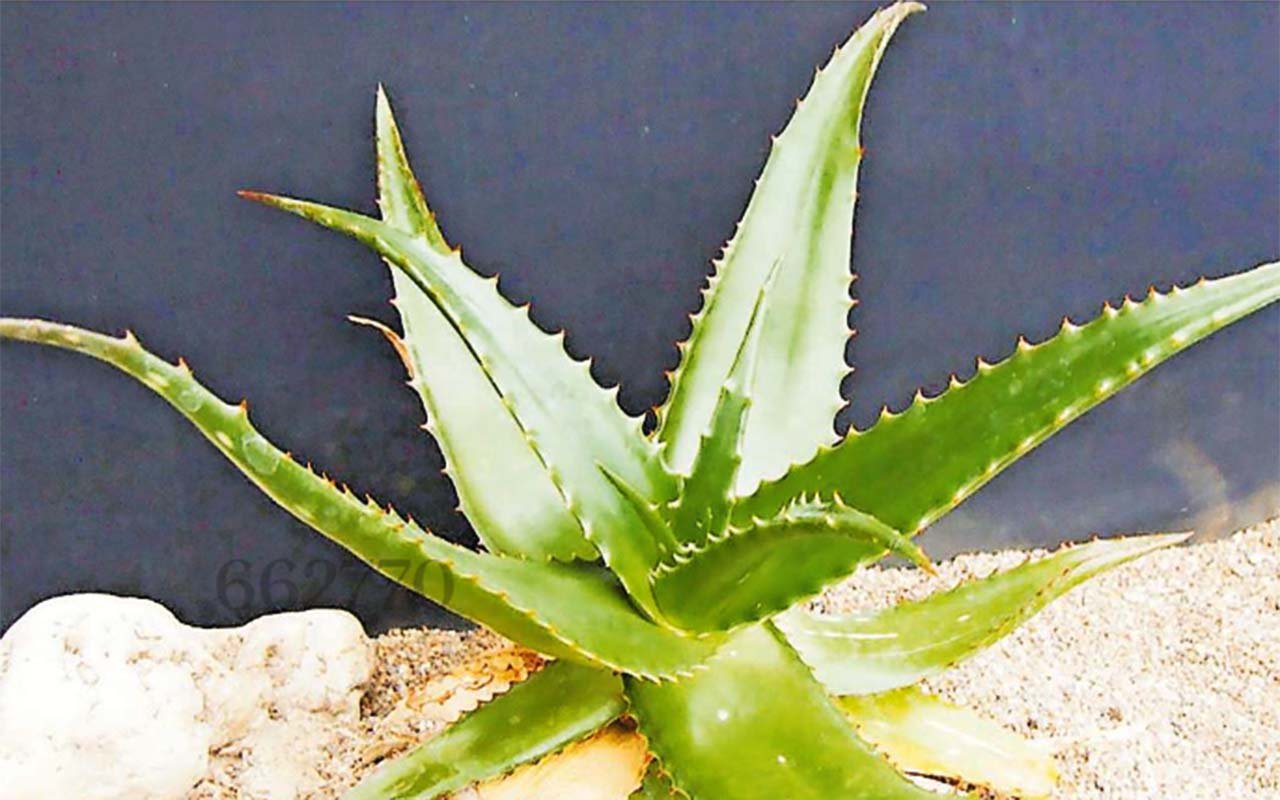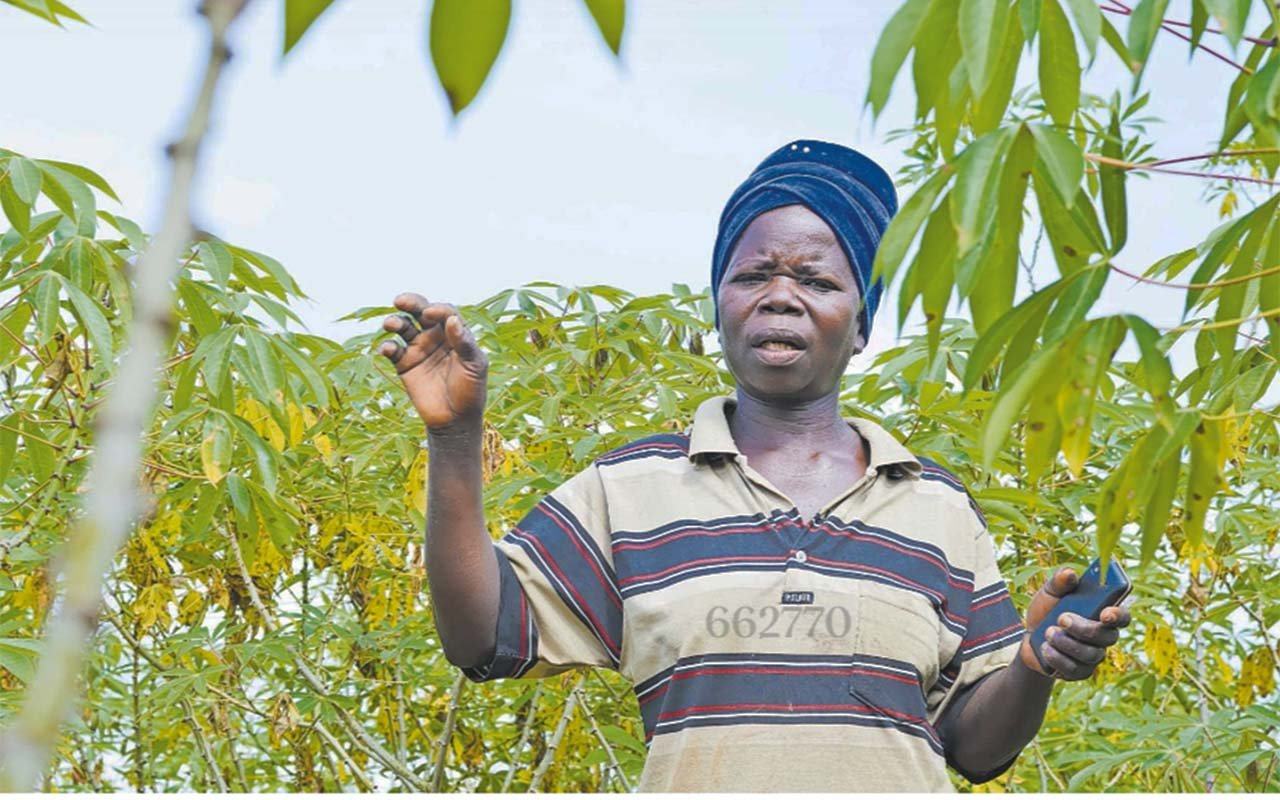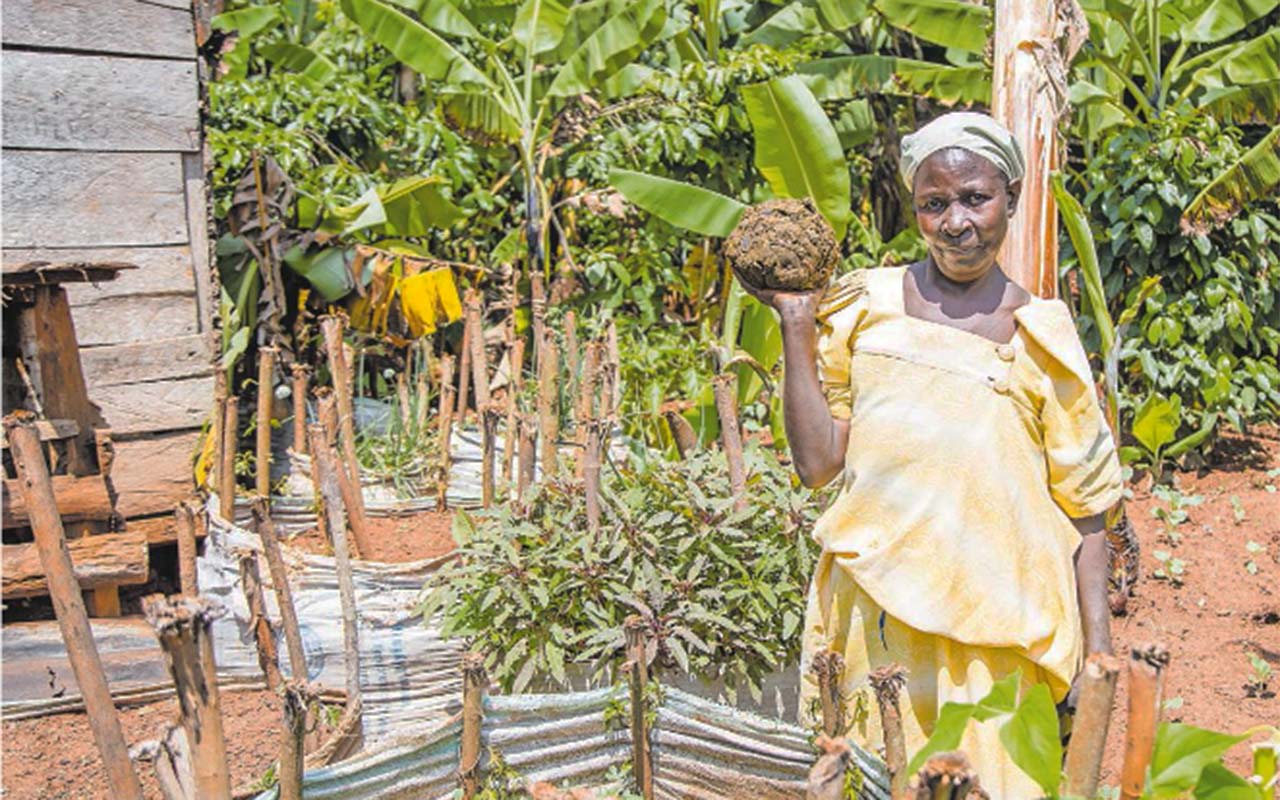
Woman handling manure at Ssibukunja village in Buikwe District. PHOTO DAPHINE NAKABIRI
Smallholder crop and livestock farmers in sub-Saharan Africa and Uganda in particular are inherently nutrient-limited, which restricts crop productivity and leads to high yield gaps.
Statistics show that approximately 41 percent of Uganda’s land is experiencing degradation where the soils are low in inherent fertility, particularly Nitrogen and Phosphorus, and have lost organic matter and major nutrients.
Experts say inadequate manure management practices lead to nutrient loss through leaching and greenhouse gas (GHG) emissions, especially Methane and Nitrous Oxide. Without appropriate management, manure can lead to several negative environmental and health effects (in animals, humans, and ecosystems), threatening livelihoods.
Livestock manure
Also, human health effects are intensified since manure handling is often the job of women and children, exposing them to manure-borne diseases.
Despite this, livestock manure is a critical asset that can help overcome yield limitation because it provides nutrients to plants and improves crop yields, thereby contributing to food security and nutrition.
Focus on the pig sector
Dr Joshua Waiswa, a technical project manager at Veterinary Sanfrontiers Germany (VSF), says the focus is on the dairy sector while neglecting the pig sector.
Dr Waiswa says arrangements have been finalized to focus on the pig value chain as one of those chains that are growing very fast to enhance livelihoods in communities that depend on livestock, considering the health of humans, animals, and the environment.
Mitigating the risks
The initiative is jointly funded by the Solution-oriented Research for Development (SOR4D) programme, the Swiss Agency for Development and Cooperation (SDC), and the Swiss National Science Foundation.
Dr Waiswa says the three-year programme would look at the risks involved in manure handling since smallholder farmers, mostly in rural areas, handle the manure with their bare hands and also handle food afterward.
“In case there is a pathogen in the manure, it is easily transmittable to the food through the fingers. But there are better ways of how you can improve the performance of this manure when you make a small tweak on how you keep it, when you pick it, how you store it, and how you treat it,” he adds.
The programme would look at the entire cycle of the pig value chain at the farm level, considering that the pigs eat the feeds coming from the crop industry at the farm and they are giving excretes which are prepared to give manure. The people handling this manure face risks at every point.
Manure from pig waste
Dr Waiswa states that manure from pigs, if well managed, influences production on the farm in terms of both crop and pig productivity.
“If you look at the consumption of pork, it is going very high in terms of numbers or per capita consumption, but also the number of households engaged in pig production has grown over the years with limited research and interventions in the pig value chain,” Dr Waiswa explains.
In addition to smallholder farmers’ dominance, government interventions that give out pigs to many households to alleviate poverty show the importance of focusing on this sector.
Quality of manure
Dr Waiswa emphasizes that the quality of manure is highly dependent on farm management practices, animal husbandry practices, and household systems.
“If the pig is raised the wrong way, there are chances of producing poor-quality manure, which could contain disease pathogens, thereby affecting crop production.”
